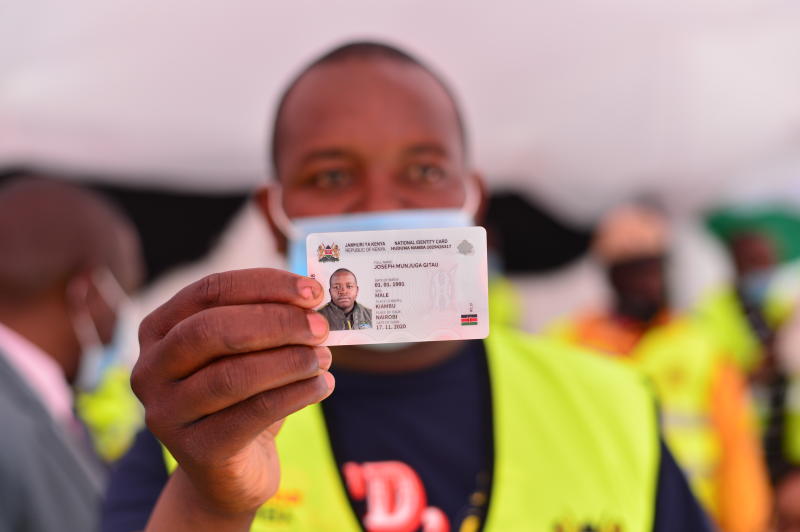×
The Standard e-Paper
Kenya’s Boldest Voice

Man displays Huduma Namba Card [John Muchucha, Standard]
Last week, the High Court stopped the rollout of Huduma Namba cards due to what it termed violation of the Data Protection Act (DPA), which dictates how our personal information is used by organisations, businesses or the government.